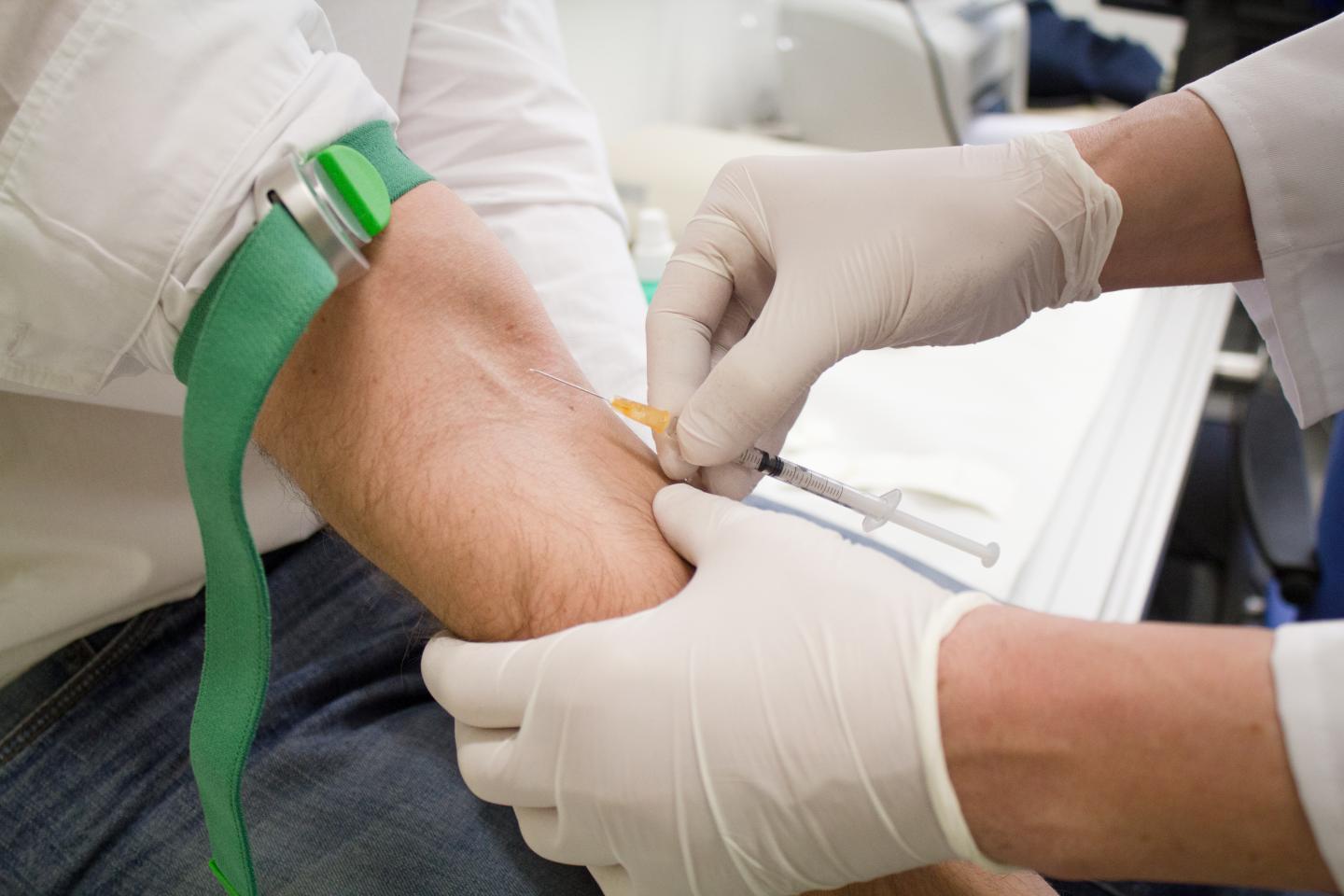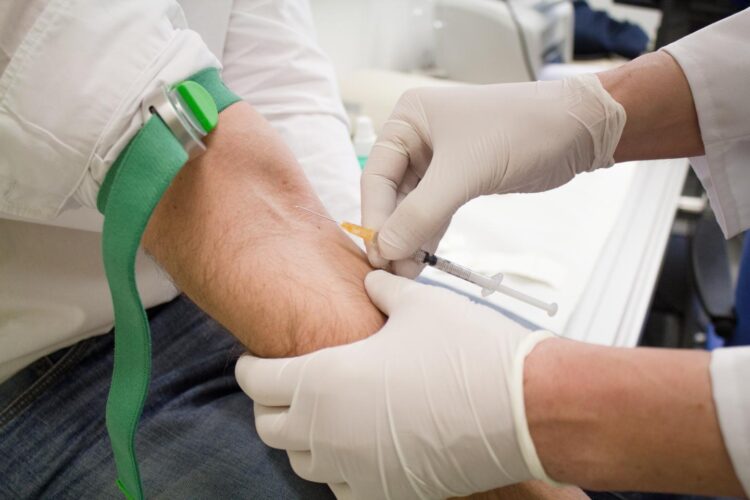
Credit: Universität Tübingen / Paul Mehnert
Sanaria® PfSPZ-CVac” is a live vaccine consisting of infectious Plasmodium falciparum (Pf) malaria parasites that are injected into the subject at the same time as they receive an antimalarial drug. The parasites quickly enter the liver where they develop and multiply for 6 days, and then emerge into the blood As soon as the parasites leave the liver, the drug kills them immediately. Thus, the immune system of the vaccinated subject is primed against many parasite proteins and becomes highly effective at killing malaria parasites in the liver to block infection and prevent disease.
“With this study, we have reached a new important milestone in the development of an effective malaria vaccine. With only three immunizations over four weeks, we achieved very good protection against malaria,” explains Prof. Peter Kremsner, who has helped to advance the malaria research field at the DZIF since its inception. His team was able to develop a new immunization regimen that significantly reduces vaccine administration compared to previous studies. The number of visits required by a subject for complete immunization has been reduced from 13 to three. Importantly, the team showed that vaccination with parasites from Africa could protect against genetically diverse parasites from South America.
Proof of efficacy was provided using the controlled human malaria infection (challenge) regimen developed by the Tübingen and Sanaria teams. Here, the test subjects were infected with parasites after immunization. If immunization against the parasites was successful, the parasites would be specifically killed by the immune system. If the immune protection is incomplete and the parasites multiply, the test subjects are treated before any symptoms of disease appear. Ten of 13 subjects vaccinated in this study were completely immune to the infection.
“The vaccine produces a high level of different antibodies and immune cells in the body that can recognize both the injected parasites and antigens of the subsequent liver stage. These antibodies and immune cells contribute to the strong protective immunity” explains Dr. Rolf Fendel.
With an estimated 229 million infections and 409,000 deaths worldwide in 2019, malaria is one of the world’s most important and dangerous infectious diseases. It is caused by parasites transmitted to humans through the bites of infected female mosquitoes. Children under the age of five are the most vulnerable group affected by malaria, accounting for 67 percent (274,000) of all malaria deaths worldwide in 2019.
###
About Sanaria Inc.
Sanaria is a biotechnology company based in Rockville, Maryland (USA) that is developing whole parasite PfSPZ vaccines to protect against malaria in collaboration with the University Hospital of Tübingen, Germany. Sanaria’s vaccines have been shown to be highly protective against Plasmodium falciparum infections in humans. Sanaria’s vaccines will be used to prevent malaria in individuals and in combination with other malaria control measures to stop malaria transmission and eliminate malaria.
About the DZIF
The German Center for Infection Research (DZIF) coordinates translational infection research in Germany and provides strategic direction. Its mission is to translate results from basic infectious disease research into clinical research and bring them to patients. 35 DZIF research institutions work together against the global threat of infectious diseases. The Tübingen site coordinates the research area Malaria with site spokesperson Prof. Peter Kremsner, and co-coordinators are active at the site for Gastrointestinal Infections, Hospital Germs and Antibiotic-Resistant Bacteria and New Antibiotics.
Media Contact
Prof. Peter Kremsner
[email protected]
Original Source
https:/
Related Journal Article
http://dx.





